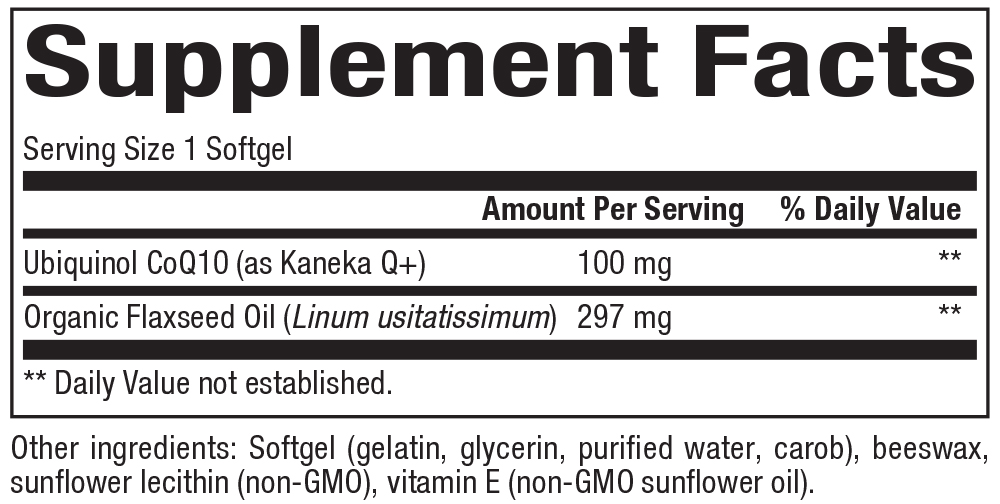
Bioactive and Reduced Form · 100 mg
100 mg
60 Softgels ( SKU: 9315U )
Supplement Facts:

Medicinal Ingredients
| Each softgel contains: | |
| Ubiquinol CoQ10 (as Kaneka Ubiquinol®) | 100 mg |
| Organic Flaxseed Oil (Linum usitatissimum) | 297 mg |
Dosage:
1 softgel 1-3 times per day or as directed by a health care professional.
Warnings:
Consult a health care professional prior to use if you are pregnant, trying to become pregnant, breastfeeding, taking medication, have a medical condition, or anticipate surgery. Keep out of reach of children.
Allergens:
Contains no artificial colors, preservatives, or sweeteners; no dairy, starch, sugar, wheat, gluten, yeast, soy, corn,
egg, fish, shellfish, salt, tree nuts, or GMOs.
